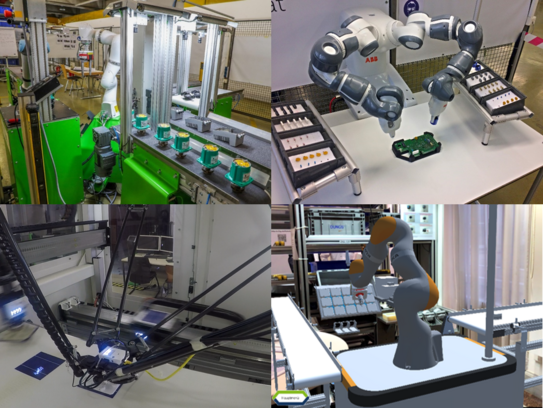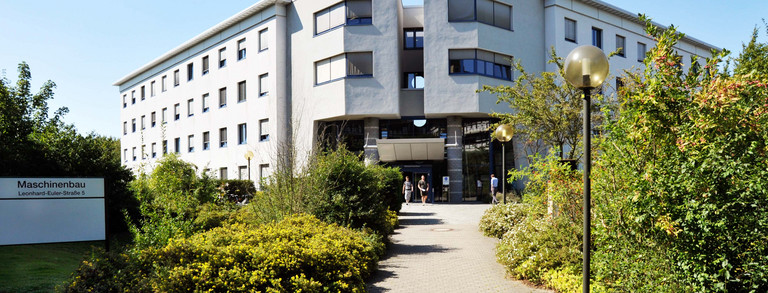Design of Production Systems (DPS)
The DPS deals with the analysis and improvement of existing production systems and imparts practical methods from the areas of lean, holistic production systems and continuous improvement (CIP) as well as innovative new approaches to the analysis of dynamics and variability in value streams.
Why are the topics of DPS so relevant?
The increasing trend towards individual products and shorter product life cycles poses new challenges for production. Production as a place of value creation is the center of manufacturing companies. Only production that is tailored to market conditions ensures the competitiveness of companies and enables short lead times.

Why should students take the DPS?
Within the course you will receive as a student(s) of the course mechanical engineering or industrial engineering the opportunity to establish a basic understanding of the relationships in production systems and meet demand of lean management methods.
In the event, the principles of the Toyota production system and lean management are conveyed as well as concrete methods for minimizing set-up times (SMED) and analyzing value streams. These topics are enriched by the inclusion of the variability in the value stream, bottleneck consideration as well as extended methods for performance coordination and production planning and control (PPS). The aim is to impart knowledge about the design of optimal processes in production.
Core issues in the DPS
- Historical origins of today's Production Systems and the Toyota Production System
- Basics of Holistic Production Systems
- Value Stream Analysis and Design
- Process Orientation and Pull Principle
- Dynamic Bottleneck Identification
- Laws in Production Systems
- Production Planning and Control (Kanban, ConWIP, etc.)
- Error Prevention and Total Productive Maintenance (TPM)
- Quality Management
- Visual Management and Key Figures
- Kaizen and Continuous Improvement (CIP)
Our teaching concept for conveying basic knowledge in the course of the Bachelor's programme consists of a combination of weekly lectures (2 SWS) and coordinated exercises (1-2 SWS). We attach great importance to an in-depth look at practice. Therefore, guest lectures by our industrial partners are an integral part of each lecture cycle. Thus, in addition to scientifically sound basic knowledge, you will directly gain an insight into how this is used in business practice.
Examinations are offered in the winter and summer semester. Please refer to the moodle workspace for the examination dates.
In order to support you in your exam preparation, you can contact the respective event supervisor directly with questions. Individual consultation appointments are available on request.
We use the Moodlelearning platform to organise our courses. Current schedules, all lecture and exercise documents as well as examination results are made available here.
After completing the module, students are able to model production systems and analyse them with regard to waste, variability and overload. They are also able to derive measures that lead to an improvement of the overall system and to select and purposefully apply methods of lean management and industrial engineering. Furthermore, students are able to dimension buffers, analytically describe regularities in production systems and calculate types of losses.




